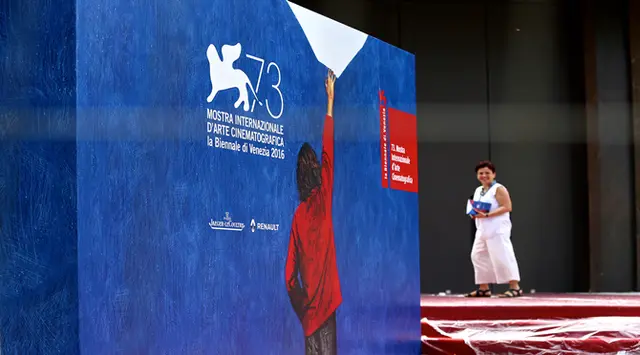With a delicate romance gradually turning into an engrossing drama, Taiwan-based director Midi Zhao brought the plight of Myanmar illegal migrants into the focus at the 73rd Venice Film Festival.
Zhao's "The Road to Mandalay", which premiered here on Sept. 5, would compete at Venice Days, an independent event devoted to high quality cinema taking place alongside the main competition since 2004.
The Chinese-language movie narrated the struggle of Lianqing and Guo, respectively played by Taiwanese actress Wu Ke-Xi and actor Kai Ko, who travelled illegally from Myanmar to Thailand.
Both young, and in search of a better life, they would become illegal migrant workers in Bangkok, and an almost unspoken love would slowly grow between them.
Yet, the approach with which the two characters face the hardship of their situation, build their expectations, and imagine their future, would gradually diverge up to reaching a surprising and dramatic end.
Dealing with such a sensitive and actual phenomenon, the Chinese-Burmese director wanted the story of Lianqing and Guo to stick to reality as much as possible.
"Since I started working on this story in 2009, I wrote some 10 versions of the script," Midi Zhao told Xinhua in an exclusive interview. "I interviewed about one hundred Burmese illegal migrants working in Thailand, and adapted the script according to their testimonies, to put details of their life in the movie."
On the other hand, the story was already very familiar to the director. Zhao explained that this story belongs to his own family' s experience.
"My older sister went through the same path as the movie's female character," he added, and the same was for so many other families in Myanmar.
"The Road to Mandalay" provided the audience with a strong female protagonist, and not by chance. Zhao said the character of Lianqing was based on his sister's personality.
"Usually, in the Chinese tradition, men are those who go out, or abroad, to make a living for their family," he said. "Yet, in my hometown (in Myanmar), many men were drug-addicted, so it took to women like my mother or my sister bear that responsibility."
That was why his sister's image kept surfacing while the script was being written. "She was "tough", made money, and eventually allowed me to move from Myanmar... but in a safe way, and for studying," the director explained.
The Taiwanese actress spent a year living in a Burmese village, and working in a factory in Bangkok, to get herself into the role of this determined, yet gentle, young woman.
"The most important thing was to empathize: that is, to really realize how the life of illegal migrant workers is, and how they feel," Wu told Xinhua.
The second major task for her was to lower the dramatic performance.
"Midi asked me to be as much natural as I could. The female protagonist is like many other women in Asia: they are strong, but soft at the same time," Wu added.
"They carry a lot of responsibilities for their family, and bear discrimination and humiliation without cracking up."
Asked whether his movie might increase awareness on illegal migrant workers' struggle in Asia, the director gave a mixed response.
"In Asia, as well as in Europe, authorities worry about this issue, but since many countries in Southeast Asia are still developing, governments also have other big problems to tackle," he said. "Life is complicate, and there are many factors artists do not know well. As such, the only thing we can do is to express what we see in the society, spread it out, and try to explain."
"Watching a movie, however, someone might be touched, and empathize: in such a way, the movie might influence the way people look at this issue," Zhao concluded.
(APD)
 简体中文
简体中文

